2025 Future Leaders in Bioengineering Seminar Series
Future Leaders in Bioengineering at Rice is an annual seminar series that hosts leading postdoctoral fellows and senior PhD students to give a seminar and meet with the faculty in the Department of Bioengineering at Rice University. In addition to presenting a seminar, the speakers will meet with several faculty members and peers within the department to provide a networking opportunity. Travel and lodging support for speakers is included. This year's seminars are expected to begin Spring 2026.
Who should apply
The opportunity is open to all postdoctoral fellows and senior PhD students and all are encouraged to apply.
How to Apply
To apply for this opportunity, please submit the following materials to flb@rice.edu
- Title and abstract of your talk, with one figure. Up to 250 words abstract and 150 words for the figure caption.
- Statement of future career goals and research interests (up to 500 words)
- NIH-format biosketch
- A letter of recommendation from your current (postdoctoral, or doctoral) advisor
- Please submit your application materials by email as a single PDF file to flb@rice.edu
Application Deadline: November 1st, 2025
2025 Awardees
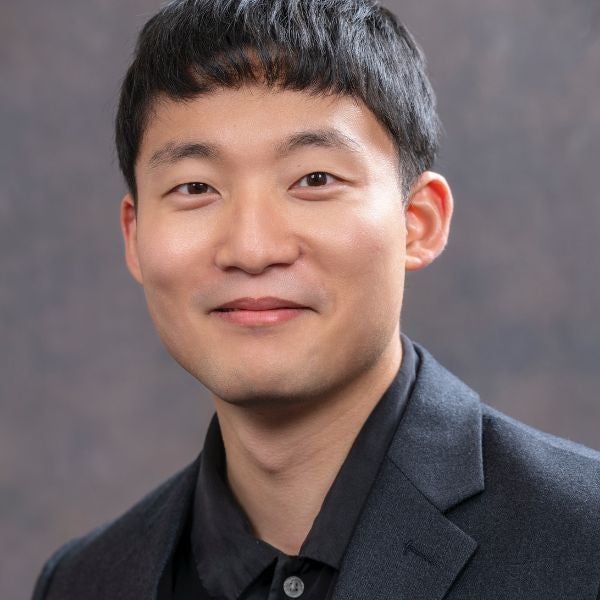
Jongwon Lim, Ph.D.
Joe Greene Postdoctoral Fellow
University of Illinois Urbana Champaign
- Biography
-
Jongwon Lim is a postdoctoral researcher at the Materials Research Laboratory (MRL) at the University of Illinois Urbana Champaign (UIUC), where he is a Joe Greene Postdoctoral Fellow. He received his PhD in Bioengineering in 2024 from the UIUC as an Asan Medical Bioscience Scholarship Fellow, under the supervision of Rashid Bashir. His doctoral and postdoctoral research focuses on developing purification-free molecular technologies for analyzing complex biological samples, with applications in diagnostics and translational bioengineering. His research has been published in PNAS (2022, 2025), Small, and Advanced Healthcare Materials.
Jongwon’s work has been recognized through multiple honors, including the Rising Stars in Materials Science and Engineering Workshop, the SLAS Innovation Award, the Baxter Young Investigator Award, and First Prize Oral Presentation Awards at UIUC Annual Bioengineering Research Symposium in two consecutive years. He has also been named a Trailblazers in Engineering Fellow at Purdue University and received the BMES CMBE Postdoctoral Researcher Travel Award. Jongwon is pursuing an academic faculty career in bioengineering, chemical engineering, and materials science. More information can be found at jongwonlim.com.
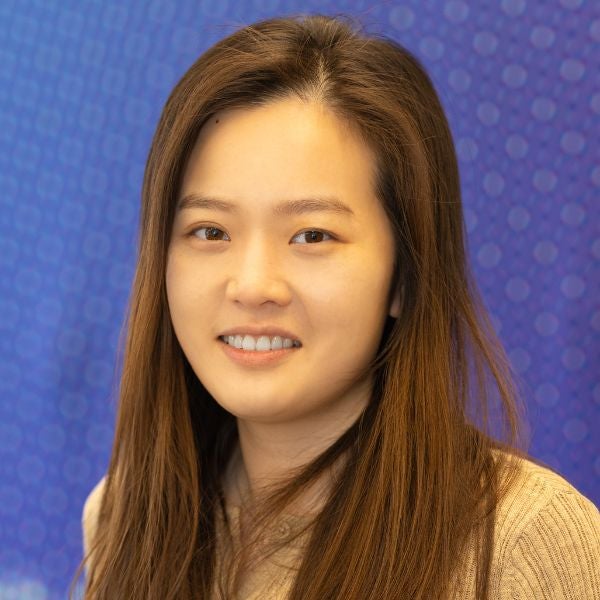
Stephanie Zhang
Postdoctoral Research Fellow
Harvard University
- Biography
-
Stephanie Zhang is a postdoctoral research fellow in Dr. David Walt’s laboratory at Brigham and Women’s Hospital and the Wyss Institute for Biologically Inspired Engineering at Harvard University, where she develops ultrasensitive single-molecule detection platforms with applications in early disease diagnostics. She received her Ph.D. in Chemistry from Harvard University under the mentorship of Dr. Jack W. Szostak, during which she built minimal artificial systems to explore how RNA replication, catalysis, and membrane dynamics could be coupled within protocell models. She obtained her B.S. in Chemical Biology from the University of California, Berkeley, where she worked with Dr. Peidong Yang on inorganic-biological hybrid photocatalytic systems for solar energy conversion. During her training, Stephanie received multiple honors, including the Regents’ and Chancellor’s Scholarship, an NSF award, and an NIH Ruth L. Kirschstein F32 Postdoctoral Fellowship.
Previous Awardees
2024
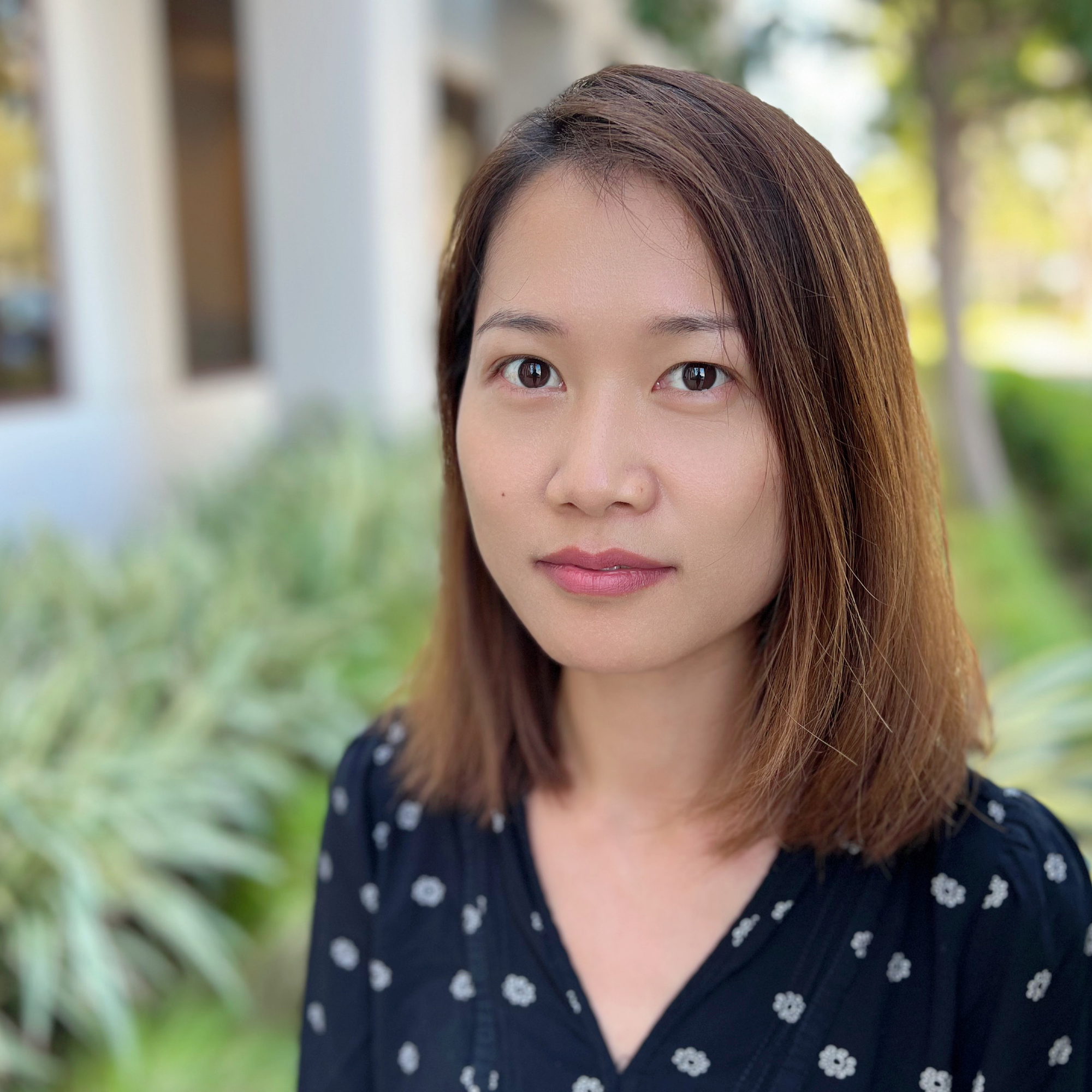
Juan Hu, Ph.D.
Postdoctoral Fellow
University of California, Irvine
- Biography
-
Dr. Hu achieved her doctoral degree in chemistry from Auburn University in 2018 under the guidance of Professor Christopher J. Easley in the Department of Chemistry and Biochemistry. There, she developed sensitive immunoassays and microfluidic tools for studying dynamics of hormone secretion from cells related to diabetes and obesity. She then joined the Department of Chemistry at Scripps Research for her postdoctoral training under the guidance of Professor Brian M. Paegel, and later moved with the Paegel Laboratory to UC Irvine in 2019. During her postdoctoral training, she has studied membrane permeability and developed high-throughput permeation measurement and screening methods. Her research has been published in Nature Chemistry, Journal of Medicinal Chemistry, Analytical Chemistry, and Lab on a Chip. Dr. Hu received an NIH Pathway to Independence Award (K99/R00).
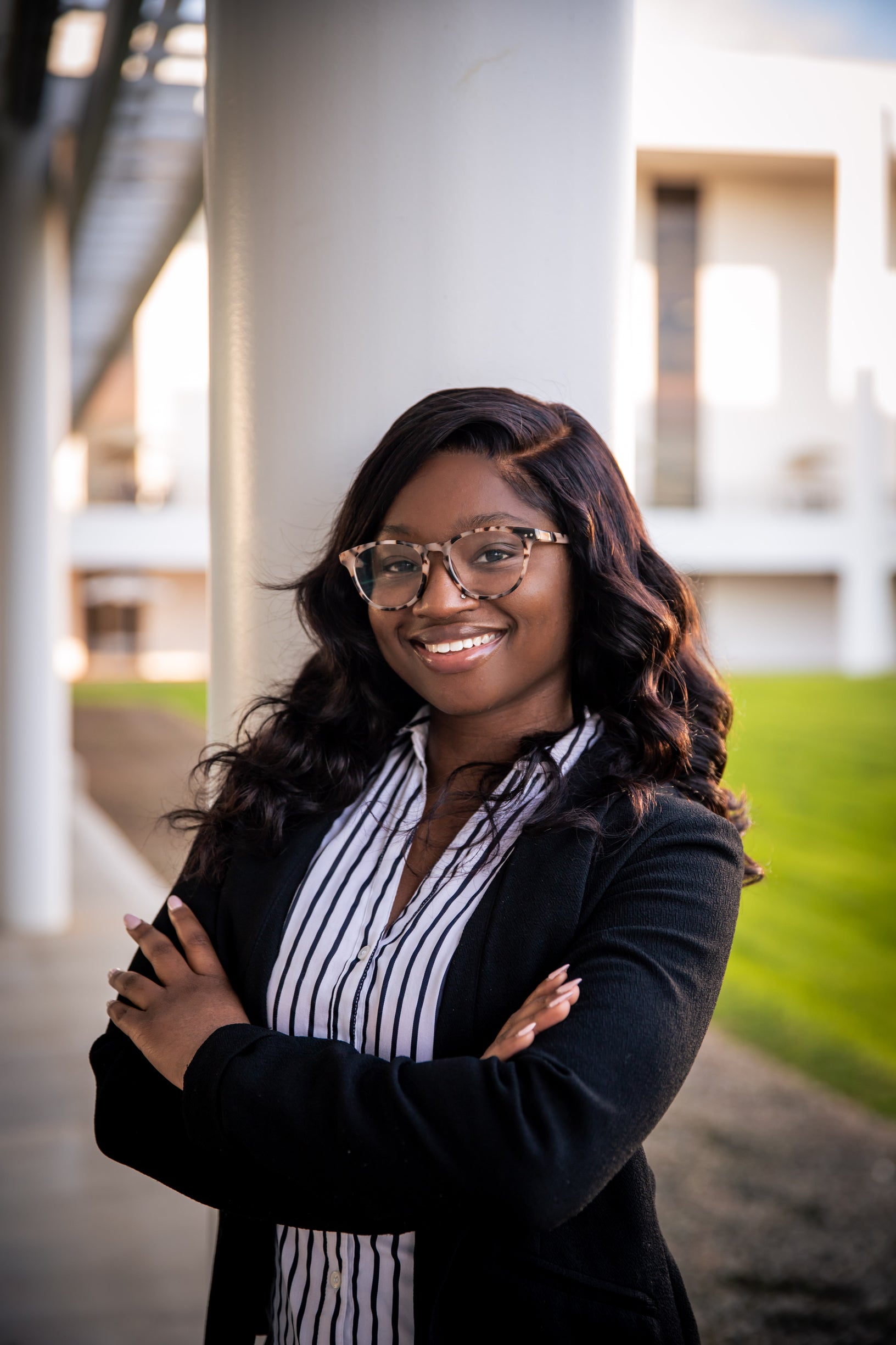
Kharimat Lora Alatise
PHD Candidate Department of Bioengineering Nanobiotechnology Lab
Clemson University
- Biography
-
K. Lora Alatise earned her B.S. in Biomedical Engineering from the University of Rochester, working with Dr. Danielle Benoit in her Therapeutic Biomaterials lab as a Ronald E. McNair Postbaccalaureate Achievement Scholar. Her research focused on characterizing peptide-conjugated polymeric nanoparticles for small molecule drug delivery. Currently, she is a Ph.D. candidate in Bioengineering at Clemson University, conducting research in Dr. Angela Alexander-Bryant’s Nanobiotechnology Lab, where her dissertation focuses on improving nucleic acid delivery to ovarian tumors. At Clemson, Lora has garnered recognition for her research and service, receiving several awards including the 2023 Eugene M. Langan III Service Award and the Call Me Doctor Fellowship. During her Ph.D., she gained additional expertise by conducting formulation research in Genetic Medicine at Eli Lilly and Company. Upon completing her Ph.D., Lora aims to continue advancing targeted delivery systems for nucleic acid delivery to study and treat diseases that affect distinct and minoritized populations. Lora is passionate about training the next generation of engineers – she actively mentors undergraduate students in research projects and outside of the lab.
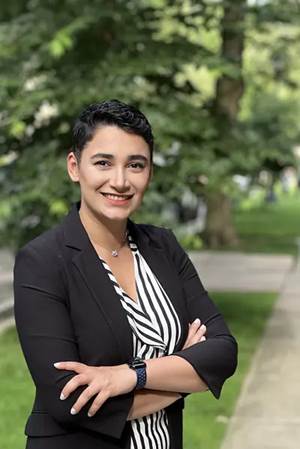
Hanie Yousefi, Ph.D.
Postdoctoral Fellow
Chan Zuckerberg Biohub, Chicago, Illinois
- Biography
-
Doctor Hanie Yousefi (She/Her/Hers) is a biotech innovator, mentor, entrepreneur, and an advocate for equitable health. Hanie is currently a Chan Zuckerberg Fellow building tissue integrated bioelectronics for understanding the role of inflammation in disease progress. She holds a BSc and an MSc in Chemical Engineering. Hanie earned her PhD degree in Pharmaceutical Sciences from the University of Toronto under the supervision of Dr. Shana Kelley where she built reagentless electrochemical systems for infectious disease diagnostics. She co-founded a biotech startup, Arma Biosciences, in 2020 to take this technology to the market. Hanie has mentored over 20 high school, undergraduate, and graduate students and is a proponent of teamwork having published with over 50 co-authors. Hanie has a demonstrated record in service to her community and has held multiple leadership roles such as the chair of student services and the president of the graduate student association in her past institutions. She has been well recognized during her studies with awards and honors such as the NSERC-CGSD PhD fellowship, NSERC-PDF, Pfizer Canada graduate student fellowship and University of Toronto’s leadership award. She has been named a rising star by MIT, Stanford U., and UC Berkeley, a future faculty by ACS PMSE and MRS, and a CAS future leader. She is an advocate for equitable personalized health for everyone and is dedicated to building a research program aimed to build affordable and scalable diagnostics technologies.
2022
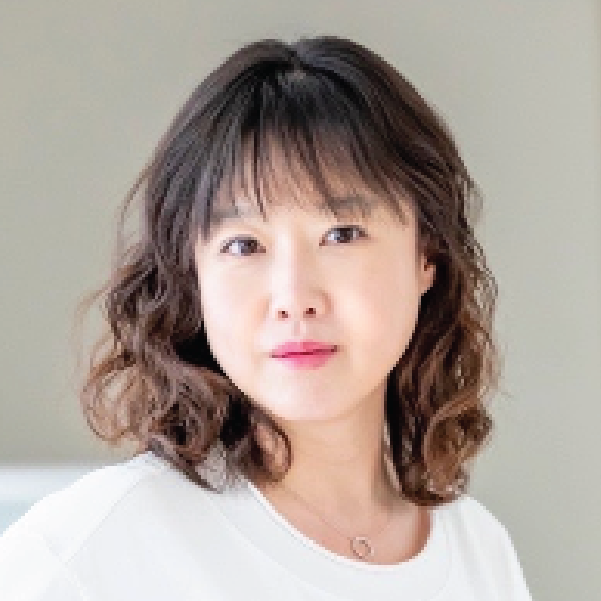
Jinyoung Kang, Ph.D.
Postdoctoral Associate
McGovern Institute for Brain Research
MIT
- Biography
-
Jinyoung is a postdoctoral associate at the McGovern Institute for Brain Research of MIT, working in the labs of Ed Boyden and Guoping Feng. She is developing novel tools for mapping and controlling brain activity. She received her Ph.D. in the Department of Nanoengineering at the University of California San Diego, working in the lab of Michael Sailor, where she focused on the delivery of therapeutics and imaging agents in vivo using porous silicon nanomaterials. Previously, she completed her B.S. and M.S. degrees from the Department of Chemical Engineering at Yonsei University.
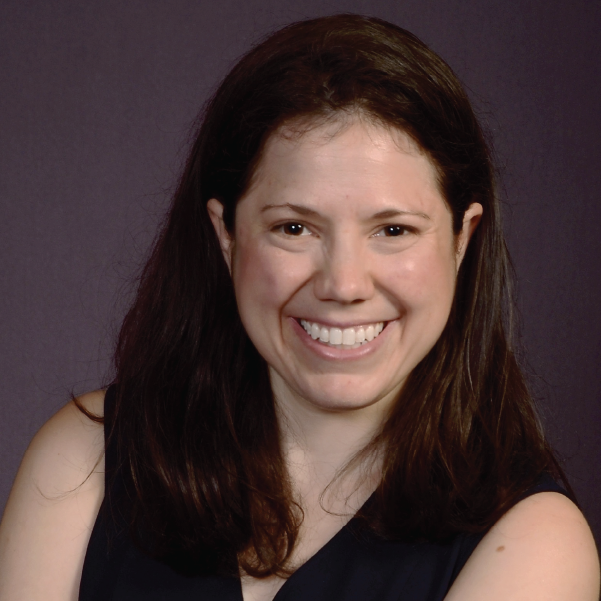
Irene Kaplow, Ph.D.
Postdoctoral Fellow
Computational Biology Department
Carnegie Mellon University
- Biography
-
Irene Kaplow received her B.S. in Mathematics with a minor in Biology from the Massachusetts Institute of Technology in 2010. There, she began her career as a computational biologist while doing research with Bonnie Berger. She then went to graduate school at Stanford University, where she received her Ph.D. in Computer Science in 2017. At Stanford, she worked in the Hunter Fraser and Anshul Kundaje's labs to develop methods to analyze novel high-throughput sequencing datasets to better understand the roles of DNA methylation and Cys2-His2 zinc finger transcription factor binding in transcriptional regulation. Irene is now a Lane Postdoctoral Fellow in Andreas Pfenning's lab in the Computational Biology Department at Carnegie Mellon University, where she is developing methods to identify regulatory elements whose regulatory activity differences between species is associated with the evolution of neurological phenotypes. In the future, Irene plans to extend this work to non-neurological phenotypes and dissect the sequence differences at regulatory element orthologs that have caused regulatory activity differences between species.

Jessica Butts, Ph.D.
Postdoctoral Fellow
Baylor College of Medicine
- Biography
-
Dr. Jessica Butts completed her Bachelor of Science Degree in Biomedical Engineering at Washington University in St. Louis where she worked with Dr. Shelly Sakiyama-Elbert to develop the first directed differentiation protocol of V2a interneurons from mouse embryonic stem cells. Jessica then completed her doctoral work with Todd McDevitt at the Gladstone Institutes receiving a PhD in Bioengineering from the University of California – San Francisco and Berkeley. Her work focused on deriving caudal interneurons from human pluripotent stem cells. Jessica is now a HHMI postdoctoral fellow with Dr. Huda Zoghbi at Baylor College of Medicine researching neuronal fate decisions in the developing hindbrain. This work was funded by an F32 NRSA from the NINDS. Her long-term research goals are to utilize tissue engineering strategies and multi-omic approaches to develop mouse and human stem cell-derived brainstem organoid models mimicking native neural development.
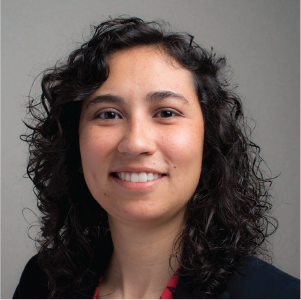
Ana Hernandez-Reynoso, Ph.D.
Postdoctoral Researcher
University of Texas
- Biography
-
Ana Hernandez Reynoso is a postdoctoral researcher at the University of Texas at Dallas for the Pancrazio and Cogan laboratories. She received her doctorate degree in Biomedical Engineering from the Romero laboratory at the same university, where she was supported by the Mexican National Council for Science and Technology. Currently, she focuses on improving the performance of microelectrode arrays for long-term recording and stimulation, supported by an NIH/NIDS diversity supplement. Her goal is to become an independent academic researcher and leader in the field of neural engineering, developing translational neural interfaces for novel therapeutic approaches. She is preparing to submit a K99/R00 proposal within the next 6 months to explore the translation of bioelectronic medicines to help individuals who have suffered from traumatic spinal cord injury. She is committed to the continuous, rigorous and responsible communication of science for the advancement of the neural engineering field.

Mariann Ackun-Farmmer, Ph.D.
Postdoctoral Researcher
University of Maryland, College Park
- Biography
-
Marian Ackun-Farmmer, Ph.D. graduated from George Washington University in 2012 with a B.S. in Biomedical Engineering (BME). She then joined a three-year rotational employment program as a Quality Development Associate at Baxter International. During that time, Marian rotated in various quality assurance roles at the Mississippi, North Carolina, and Indiana manufacturing facilities. She joined the lab of Danielle S.W. Benoit, Ph.D. at the University of Rochester (UR) in the Biomedical Engineering department to pursue her Ph.D. in 2015 and earned her Masters degree in 2017. Marian’s thesis work focused on developing targeted drug delivery systems to improve acute myeloid leukemia treatments. She completed her Ph.D. training in 2020 and joined the lab of Christopher Jewell, Ph.D. at University of Maryland, College Park to conduct her postdoctoral research training. In the Jewell lab, Marian is designing self-assembled immune polyelectrolyte multilayers to treat multiple sclerosis. Outside of the lab, Marian is the student representative for the Drug Delivery Special Interest Group for the Society of Biomaterials. She is also passionate about mentoring others and is a current George Washington University Clark Scholars Mentor.
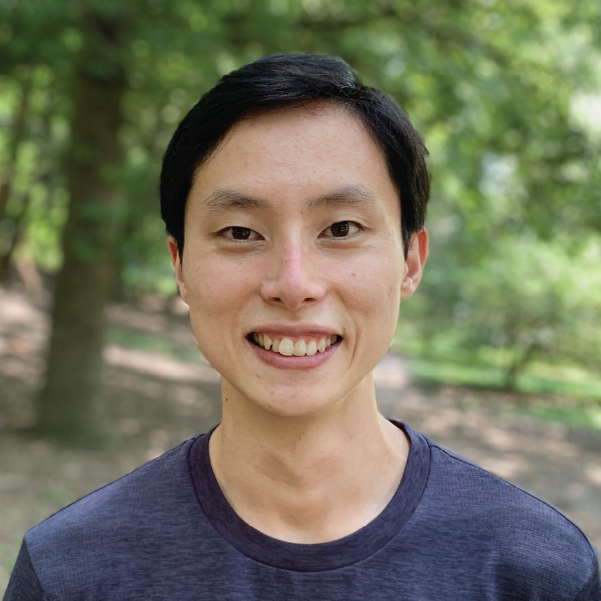
Tetsuhiro Harimoto, Ph.D.
Postdoctoral Fellow
Wyss Institute
Harvard University
- Biography
-
Tetsuhiro received his Ph.D. in Biomedical Engineering at Columbia University in 2022. His graduate work in Dr. Tal Danino’s lab centered on engineering living microbes as drug delivery systems. In particular, he developed synthetic biology and bioengineering technologies to program bacteria for the detection and treatment of cancer. Currently, Tetsuhiro is a postdoctoral fellow in the Wyss Institute for Biologically Inspired Engineering at Harvard University with Dr. Dave Mooney. Tetsuhiro is designing next-generation living drug delivery systems utilizing multidisciplinary approaches of immunoengineering, biomaterials, and synthetic biology. Tetsuhiro is the recipient of multiple awards including the Honjo International Scholarship and the NCI Predoctoral-to-Postdoctoral Fellow Transition Award (F99/K00).
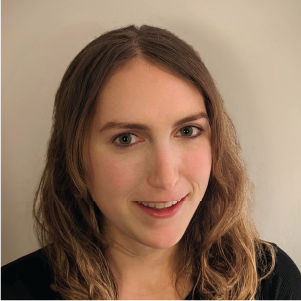 Cynthia Steinhardt, Ph.D.
Cynthia Steinhardt, Ph.D.
Postdoctoral Fellow
Colombia University
- Biography
-
Dr. Steinhardt is a postdoctoral fellow at Columbia University working with Prof. Mark Churchland. She received her PhD from the Department of Biomedical Engineering at Johns Hopkins University working with Prof. Gene Fridman. She graduated from Princeton University with a Neuroscience A.B. and a certificate in Cognitive Science. Her research has focused on how direct/galvanic current and pulsatile stimulation affect single neurons and populations of neurons and therefore can be used to produce naturalistic population spiking patterns in groups of neurons. Using computer simulations to understand these effects, Dr. Steinhardt has developed novel algorithms and theories about electrical stimulation that advance the fundamental science and applications of electrical stimulation to create more effective neural implants. Her future plan is to use similar techniques to explore how these interactions drive neural dynamics and how they may be tuned to better drive local and interregional communication within the brain.
